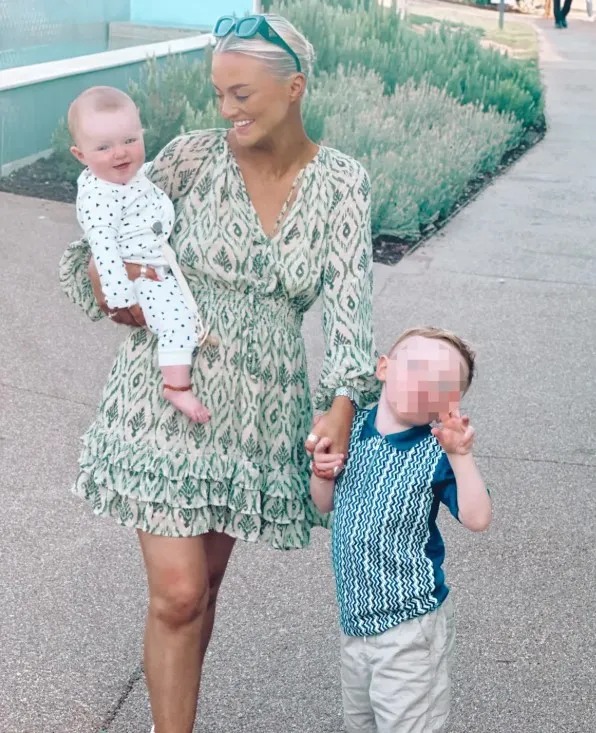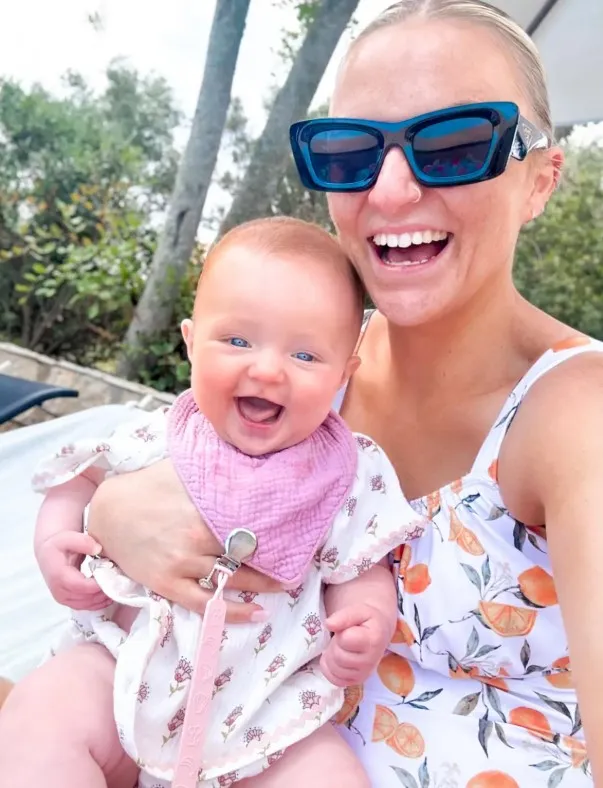A gentle mom doesn’t force her five-year-old to apologize, believing it’s disingenuous and helps him develop empathy and communication.
Kelly Medina Enos, a mother from York, England, has embraced a parenting style known as gentle parenting.
This approach focuses on empathy and understanding rather than strict discipline.
Kelly believes that forcing her five-year-old son, George, to say “sorry” is not effective and can feel insincere.
Mom does not force her five-year-old son to say sorry as it is “disingenuous”
Kelly began her journey into gentle parenting when George was just 18 months old.
At that time, she faced challenges with his behavior. He would hit her, and she felt lost in how to respond.

Seeking help, she turned to TikTok, where a stranger suggested she look into gentle parenting methods.
Initially, Kelly found the concept strange. However, after researching it further, she decided to give it a try.
She realized that changing her language and approach could make a significant difference in her parenting.
Instead of telling George what not to do, she began to express what she wanted him to do.
The mom emphasizes the importance of empathy
One key principle of gentle parenting is teaching children empathy.
Kelly explains that children do not fully develop the ability to empathize until around the age of eleven.
Therefore, expecting George to apologize without understanding the situation is unrealistic.
“I don’t force my child to say sorry. A child doesn’t develop empathy until they are around 11 years old.”

Instead of forcing him to say sorry, she encourages him to reflect on his actions.
When George snatches a toy from another child, Kelly asks him to think about what happened.
She prompts him with questions like, “How do you think that person feels?”
This approach helps George understand the impact of his actions and learn to communicate his feelings.
“Expecting a child to have empathy is a learnt skill.
“If we say ‘go and say sorry’ – if say they snatched a toy – it’s forced.
“You find you haven’t allowed child to step back. Instead say – ‘what’s happened here? ‘How do you think that person is feeling?’ ‘What can we say?’
“Otherwise it’s disingenuous,” she concluded.
The mom shares alternatives to punishment for kids
In her parenting style, Kelly avoids traditional punishment methods like the “naughty step” or “time out.”
Instead, she offers a “calm down corner” where George can choose to go if he needs a moment alone. This space is equipped with books and calming activities.
Kelly believes that forced isolation can lead children to feel that their feelings don’t matter.
She wants her children to know that it is okay to express their emotions.

By allowing George to take a moment for himself, she helps him process his feelings without shame.
She said: “Climbing was a huge thing for me. George was climbing on everything. I was saying ‘get down’ but that didn’t seem to land at all.
“I started saying ‘feet on the floor please’. I was astonished at the difference by changing the way I was speaking to him instead of telling him what I don’t want.
“I started to remove the word ‘don’t’. I still had discipline. I told him what I would like him to do.”
She added: “With forced isolation the child often becomes more of a people pleaser or rebels.
“They learn they have no voice and their feelings don’t matter.
“They learn ‘I need to take away my feelings of frustration and anger and then I’m deemed lovable’.
“We will stay away from forced isolation but we do a calm down corner which I offer to George.
“I’ll ask him ‘would you like some time in the calm down corner?’
“It’s got books and a breathe board – it’s a non-sensory nook. It’s an option.”

Teaching communication skills
Kelly is also teaching her younger daughter, Ariella, baby sign language.
This skill helps Ariella communicate her needs, such as wanting more food or drink.
By fostering communication from a young age, Kelly believes she can prevent frustration for both her children and herself.
Kelly emphasizes that gentle parenting is not about being permissive.
She sets boundaries and teaches her children how to behave appropriately. However, she does this with understanding and compassion, rather than through harsh discipline.
Reflecting on her own childhood
Kelly’s approach to parenting has also led her to reflect on her own upbringing.
She recalls that her parents often shouted, which made her feel anxious.
Determined to avoid repeating those patterns, she has worked hard to create a calm environment for her children.
Through her journey, she became a certified gentle parenting coach in September 2024.

This qualification has allowed her to help other parents who may struggle with similar challenges.
While gentle parenting can be effective, Kelly acknowledges that it is not always easy.
Many people confuse gentle parenting with a lack of discipline. However, she believes that seeking connection, even during corrections, is essential for raising emotionally healthy children.
Kelly encourages parents to give gentle parenting a chance before making judgments.
She believes that this approach can help children learn valuable life skills, such as empathy and effective communication.
She said: “Nobody never shouts. No one gets it right all day every day.
“Gentle parenting is when we seek connection even when correcting a child.
“We allow space for bigger emotions and give them root lessons without blaming and shaming.
“People say it’s an easy way out – it’s probably the hardest form of parenting.
“I wish people would give it a change before they make a snap judgement.”